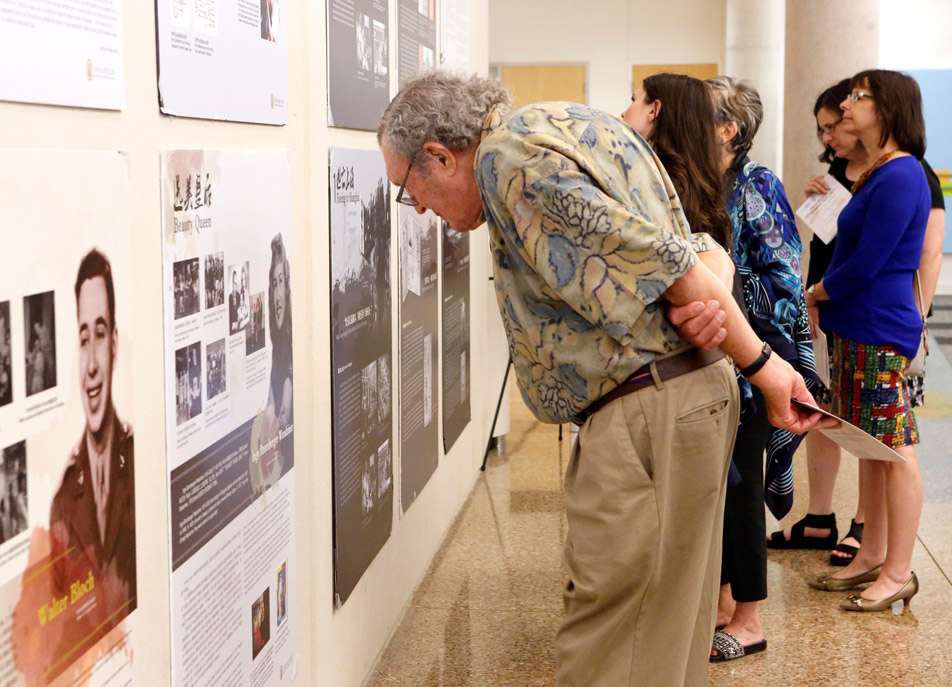The Shanghai Jewish Refugees Museum safeguards a unique chapter in history as the former site of the Ohel Moshe Synagogue, a linchpin for the thousands of Jewish refugees living in the city during and after World War II.
It’s also a symbol central to a collaborative series from the Ackerman Center for Holocaust Studies and the Confucius Institute.
On display through Sept. 30 in the first-floor gallery of the Edith O’Donnell Arts and Technology (ATEC) Building, “Jewish Refugees in Shanghai” delves into the history of the migration and the significance of the cultural exchange that took place.
Dr. Nils Roemer, director of the Ackerman Center and the Stan and Barbara Rabin Professor in Holocaust Studies, said the exhibition includes photos, personal stories and artifacts on loan from the Chinese museum.
On Saturday, Dr. Pan Guang, director of the Shanghai Center for International Studies and dean of the Center of Jewish Studies Shanghai, will deliver a lecture introducing the history of Jews in China. He will describe how the culture of immigrant Jews drew upon and was enriched by China and how they exerted their influence on Chinese cultural and social life.
“Professor Guang is one of the top scholars of Jewish studies in China, especially known for his deep knowledge of Chinese Jews in history,” said Dr. Ming Dong Gu, director of the Confucius Institute. “His lecture will situate the Jews in Shanghai exhibition into the larger context of Jewish migration to China over history and offer a fresh perspective to viewing Jewish refugees in Shanghai during World War II.”
The historic Ohel Moshe Synagogue still stands as a reminder that Shanghai welcomed thousands of Jewish refugees during a period of closed-door policies from most nations, but it also served as an emblem for an area that would become one of the city’s poorest and most crowded.
During the Japanese occupation of the city, the area around the temple — a square-mile dot in the Hongkou district — became the restricted zone for the city’s Jewish refugees.
Both Gu and Roemer will offer commentary on the Shanghai Ghetto after a screening of the film of the same name and another short film titled “A Gift of Life” at 4 p.m. on Sept. 18 in JSOM 1.112.
The event series concludes Sept. 25 with a Chinese folk music concert, “Wind from the East,” featuring the UT Dallas Confucius Institute Folk Music Band and Beijing Normal University’s art troupe.
